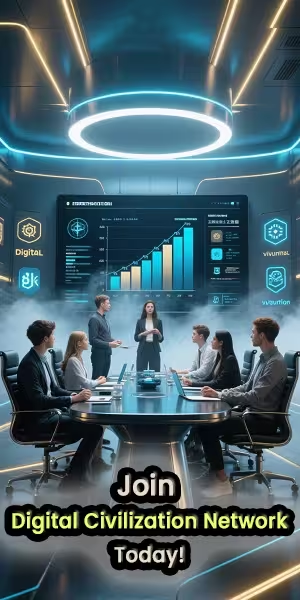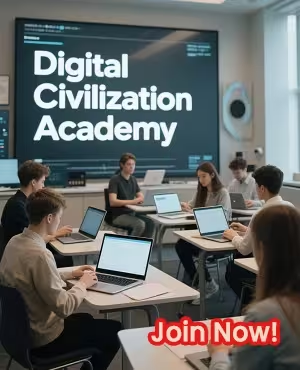Education stands at a revolutionary crossroads. As we advance deeper into the digital age, traditional classroom models are crumbling under the weight of technological innovation, changing student expectations, and evolving workforce demands. The future of education isn’t just arriving—it’s already transforming how we learn, teach, and think about knowledge itself.
From artificial intelligence tutors to virtual reality field trips, the educational landscape is experiencing seismic shifts that promise to redefine learning for generations to come. These changes aren’t merely cosmetic upgrades to existing systems; they represent fundamental reimagining of educational philosophy, methodology, and accessibility.
Future of Education: 10 Shocking Classroom Changes
1. Artificial Intelligence: The Personal Learning Revolution
The future of education is increasingly personalized, thanks to artificial intelligence. AI-powered learning platforms are creating customized educational experiences that adapt to each student’s learning pace, style, and preferences. These intelligent systems analyze learning patterns, identify knowledge gaps, and provide targeted interventions that traditional one-size-fits-all approaches simply cannot match.
Machine learning algorithms now predict which students might struggle with specific concepts before they even encounter them, enabling proactive support rather than reactive remediation. This shift from standardized to personalized learning represents perhaps the most significant transformation in educational methodology since the invention of the printing press.
2. Virtual and Augmented Reality: Breaking Classroom Boundaries
Physical classroom walls are dissolving as virtual and augmented reality technologies transport students to ancient Rome, inside human cells, or to distant galaxies. The future of education embraces immersive experiences that make abstract concepts tangible and remote locations accessible.
Students can now walk through historical battlefields, manipulate molecular structures with their hands, or practice surgical procedures without risk. This experiential learning approach dramatically improves retention rates and engagement, transforming passive observers into active participants in their educational journey.
3. Microlearning: The Bite-Sized Knowledge Revolution
Attention spans are shortening, but learning efficiency is increasing through microlearning strategies. The future of education recognizes that information consumption has fundamentally changed, with students preferring short, focused learning sessions over lengthy lectures.
Educational content is being redesigned into digestible modules that can be consumed on mobile devices during commutes, breaks, or whenever learners have spare moments. This approach aligns with modern lifestyles while improving knowledge retention through spaced repetition and just-in-time learning principles.
4. Blockchain Credentials: Secure, Portable Academic Records
Traditional diplomas and transcripts are giving way to blockchain-verified credentials that provide tamper-proof, instantly verifiable academic records. The future of education includes decentralized credentialing systems that give students complete ownership of their educational achievements.
These digital credentials can include detailed skill assessments, project portfolios, and peer evaluations, providing employers with richer information than traditional grades. The portability and security of blockchain credentials eliminate fraud while enabling seamless transfers between educational institutions worldwide.
5. Gamification: Making Learning Irresistibly Engaging
Game mechanics are revolutionizing educational motivation through point systems, achievement badges, leaderboards, and narrative-driven learning adventures. The future of education harnesses the addictive elements of gaming to create compelling educational experiences that students actively seek out rather than endure.
Educational games now simulate complex real-world scenarios, allowing students to experiment with consequences in safe environments. From managing virtual economies to solving environmental crises, gamified learning develops critical thinking skills while maintaining high engagement levels.
6. Remote and Hybrid Learning Models
The global pandemic accelerated the adoption of remote learning technologies, but the future of education will maintain these flexible models even post-crisis. Hybrid approaches combine the best of physical and digital learning environments, offering students unprecedented flexibility in when, where, and how they learn.
This shift democratizes education by removing geographical barriers and enabling access to world-class instruction regardless of location. Rural students can attend lectures from renowned professors, while working adults can pursue advanced degrees without career interruptions.
7. Collaborative Global Classrooms
Technology is connecting classrooms across continents, creating collaborative learning experiences that transcend cultural and geographical boundaries. The future of education includes global partnerships where students work together on projects, sharing diverse perspectives and cultural insights.
These international collaborations prepare students for an increasingly interconnected world while developing cross-cultural communication skills, empathy, and global awareness that textbooks alone cannot provide.
8. Skills-Based Learning Over Degree-Centric Models
The future of education prioritizes demonstrable skills over academic credentials. Employers increasingly value portfolio-based assessments, practical project experience, and competency demonstrations rather than traditional degree requirements.
This shift is driving educational institutions to redesign curricula around skill development and real-world application. Bootcamps, intensive workshops, and project-based learning programs are gaining recognition as viable alternatives to traditional four-year degrees.
9. Continuous Lifelong Learning Platforms
The rapid pace of technological change demands continuous skill updates throughout careers. The future of education includes sophisticated platforms that provide ongoing professional development, micro-certifications, and just-in-time learning resources.
These systems track industry trends, predict skill demands, and recommend learning paths that keep professionals current with evolving market needs. The concept of “graduation” is becoming obsolete as learning becomes a continuous, career-long process.
10. Data-Driven Educational Insights
Advanced analytics are transforming educational decision-making through comprehensive data collection and analysis. The future of education leverages learning analytics to optimize teaching strategies, identify at-risk students, and measure program effectiveness with unprecedented precision.
Predictive modeling helps institutions allocate resources more effectively while providing educators with actionable insights about student progress, engagement patterns, and learning preferences. This evidence-based approach to education ensures that teaching methods evolve based on actual student outcomes rather than assumptions.
Embracing the Educational Transformation
The future of education represents more than technological upgrades; it embodies a fundamental shift toward personalized, accessible, and globally connected learning experiences. These ten transformative trends are reshaping not just how we teach and learn, but what it means to be educated in the modern world.
Educational institutions that embrace these changes will thrive, while those clinging to outdated models risk obsolescence. The transformation is already underway—the question isn’t whether these changes will occur, but how quickly institutions will adapt to serve learners in this brave new educational world.
The future belongs to learners who can navigate this evolving landscape and educators who can harness these powerful tools to unlock human potential on an unprecedented scale.


